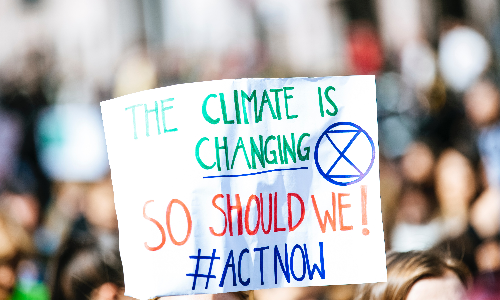Certified Expert in Climate & Renewable Energy Finance
Course Overview
The Paris Agreement marks the beginning of a new era with the focus shifting from finding a consensus on the common goals to realising jointly agreed goals. “Making finance flows consistent with a pathway towards low greenhouse gas emissions and climate-resilient development” (Article 2 c of the Paris Agreement) will require a significant increase in funding – with new instruments and approaches required to mobilize a broad range of investors and to achieve scalability in financing climate action. Financing the global energy transition will be one key building block.
Decreasing prices for renewables combined with increasing regulatory risk for traditional fossil fuels make Renewable Energy (RE) more competitive and attractive for commercial investors.
Target Audience
This course has a clear focus on finance and is suitable for both public and private sector practitioners, including entrepreneurs, project developers, private investors, initiator/fund houses, international development finance consultants and managers, plant operators and manufacturers, engineers and advisory professionals (e.g. law firms, business and tax consultants). Other interested parties, such as academics in relevant fields, are of course also welcome to register to the course.
The course aims to explain the specifics of climate and renewable energy finance. Pre-experience in (mainstream) banking and finance is therefore helpful but not required. Participants without basic knowledge in finance should accommodate for additional study time.
Workload
The course takes 6 months assuming 5-7 hours of self-study per week. It consists of 10 units which build upon each other. You will take the units in sequence and will need to pass an online multiple choice test before accessing the next unit.
The last unit includes a case study that has to be submitted on a fixed deadline.
Registration
Registrations for the course beginning on 1 September 2050 are now open.
Awarding Boby
The certification is awarded by Frankfurt School of Finance and Management,Germany.
Learning Objectives
This course will help you understand the different perspectives on financing climate and RE projects:
- Firstly, you will learn to understand the big picture of climate change and the various fields of investments resulting from climate policy needs, with RE investments being a central pillar.
- Secondly, you will be introduced to a project and business model perspective and learn which parameters are used to assess the financial viability of a climate or RE investment.
- Thirdly, the course will deep dive into RE investments and you will learn why markets alone might fundamentally not be able to trigger RE investment in a way necessary to mitigate climate change and which support instruments are available across different countries.
- Fourthly, you will get a comprehensive overview of the various RE business models that are on the market and will learn about the basics of RE technologies, the electricity markets and typical RE technology risks as relevant for the financing perspective.
- Fifthly, the universe of RE investors will be presented linking back to the previously introduced learnings on financing RE projects including, but not limited to dealing with the specific risk profile of capital intense business models in an often policy and regulation-driven market.
- Finally, you will be introduced to key parameters of financing and structuring RE projects and will learn how to apply them by setting-up and using an excel-based cash flow model for a RE project.
The course will conclude with an excursus covering the additional perspective of financing energy efficiency projects.

